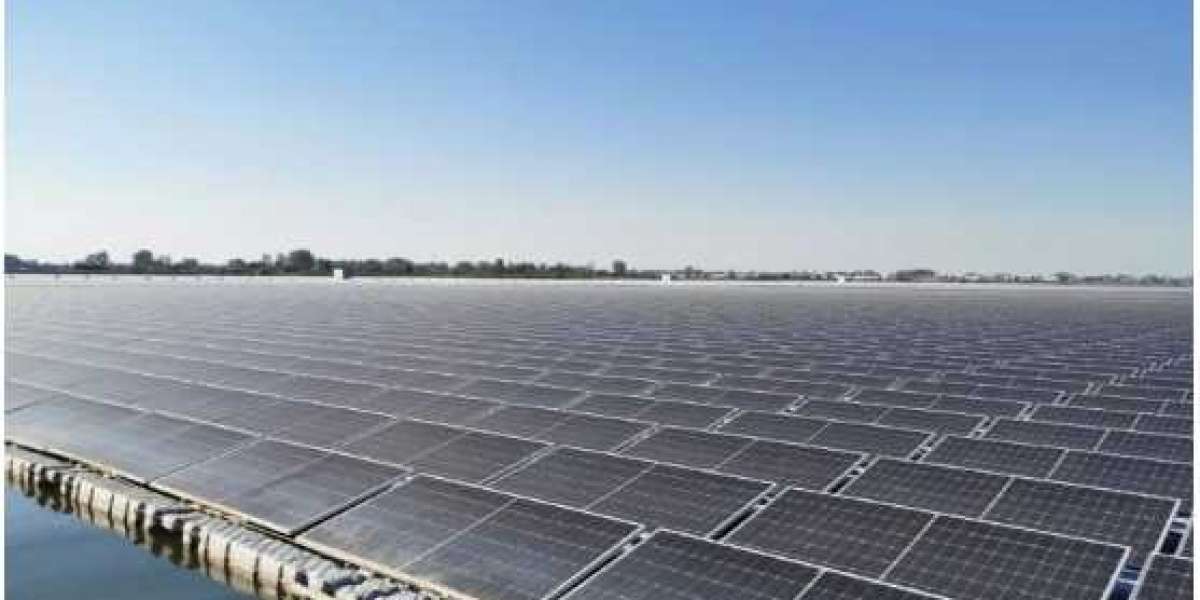Solar power has emerged as a sustainable and renewable energy source, providing an alternative to traditional fossil fuels. While ground-mounted solar panels are commonly used, a new trend in solar energy is gaining momentum – floating solar power. Floating solar power involves installing solar panels on water bodies such as lakes, reservoirs, and even oceans. In this article, we will explore the advantages of floating solar power, examining its benefits, environmental impact, and potential for widespread adoption.
I. Understanding Floating Solar Power
To fully grasp the advantages of floating solar power, let's first understand how it works and its composition.
1.Installation and Composition:
Floating solar power involves the installation of solar panels on a floating structure that is specifically designed for water bodies. These structures are typically made of high-density polyethylene (HDPE) or other buoyant materials. The solar panels are mounted on the floating platform, which is anchored to the bottom of the water body to ensure stability.
2.Floating System Design:
The design of the floating system takes into account factors such as water depth, wave and wind conditions, and the specific requirements of the solar panels. The floating platforms are designed to withstand varying water levels, challenging weather conditions, and the weight of the solar panels.

II. Advantages of Floating Solar Power
Floating solar power offers numerous advantages that make it an attractive option for harnessing solar energy. Let's explore some of these advantages.
1.Optimal Land Utilization:
One of the significant advantages of floating solar power is the optimal utilization of land. By installing solar panels on water bodies, it eliminates the need for large areas of land that would otherwise be required for ground-mounted solar systems. This is particularly advantageous in densely populated areas or regions with limited available land for solar power installations.
2.Increased Energy Generation:
Floating solar power systems have the potential to generate more energy compared to traditional ground-mounted systems. The water acts as a natural coolant for the solar panels, preventing overheating and ensuring optimal performance. Additionally, the reflection of sunlight from the water surface enhances the efficiency of the solar panels, leading to increased energy generation.
3.Reduced Water Evaporation:
Installing solar panels on water bodies helps reduce water evaporation. The shading effect created by the floating platforms minimizes direct exposure of the water surface to sunlight, reducing evaporation rates. This is particularly beneficial in areas facing water scarcity or where water conservation is crucial.
4.Enhanced Efficiency:
Floating solar power systems benefit from the cooling effect of the water, which improves the overall efficiency of the solar panels. The lower operating temperatures result in less energy loss and increased conversion efficiency. This leads to higher electricity output and improved performance of the solar power system.
5.Environmental Impact:
Floating solar power has a minimal environmental impact compared to traditional fossil fuel-based power generation. It helps reduce greenhouse gas emissions, air pollution, and water pollution. Additionally, by utilizing water bodies, it minimizes disturbance to land ecosystems and preserves natural habitats.
6.Reduced Algal Blooms:
Algal blooms, which are harmful to aquatic ecosystems, can be mitigated by floating solar power systems. The shading effect created by the floating platforms reduces the amount of sunlight reaching the water surface, limiting the growth of algae. This helps maintain the overall health and balance of the aquatic ecosystem.
III. Potential for Widespread Adoption
Floating solar power presents significant potential for widespread adoption in various regions. Let's explore some factors contributing to its increasing popularity.
1.Availability of Water Bodies:
Water bodies such as lakes, reservoirs, and ponds are abundant in many parts of the world. Utilizing these water bodies for floating solar power installations provides an opportunity to generate clean energy without encroaching on valuable land resources.
2.Synergy with Existing Infrastructure:
Floating solar power installations can be integrated with existing infrastructure such as hydropower plants or water treatment facilities. This allows for the shared use of resources and space, optimizing energy generation and promoting sustainability.
4.Offshore Applications:
Floating solar power also has considerable potential for offshore applications, where large bodies of water such as oceans can be utilized. Offshore floating solar power systems provide an opportunity to harness solar energy in coastal areas and island regions, reducing reliance on imported energy sources.

Conclusion
Floating solar power offers a range of advantages that make it a promising and sustainable option for harnessing solar energy. Its optimal land utilization, increased energy generation, reduced water evaporation, enhanced efficiency, and minimal environmental impact make it an attractive choice for regions facing land constraints or water scarcity. With its potential for widespread adoption and synergy with existing infrastructure, floating solar power has the capacity to play a significant role in the global transition towards clean and renewable energy sources. As the technology continues to evolve, floating solar power is poised to become an integral part of the renewable energy landscape, contributing to a more sustainable and greener future.







